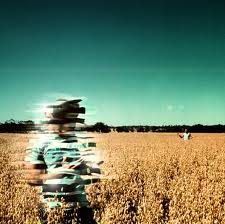
The Gift of Memories....
This time of the year is one where we can draw closer together. The rich traditions carrying on through us bring out the spirit of the season. Our compassion, caring and love for each other can strengthen and renew friendships and create new ones. It is also a time of strong emotions that have their foundation in our past; for many they are positive, for others not so. This is why this season we often find ourselves somewhat introspective. Yet, this too has great value to us, for we can use it to help us grow.
As December 25th draws closer, memories often rush back into our lives, sometimes in whole streams, a grand Christmas Eve dinner with friends, a favourite gift opening or reunion and at other times just a glimmer, the briefest glimpse more felt than “seen”. We find ourselves smiling or perhaps the opposite, but we do react in the here and now to those memories.
There are also strong cultural, archetypal thought forms and natural rhythms that reinforce our feelings and thoughts at this time of year. Memories can become more powerful, which is why we tend to look back at Christmas and their presence transformed our now. Soon after Christmas our attention will turn to another wave in our pattern, the one associated with the New Year’s arrival, which has us looking forward to the coming year.
It is natural to look back upon the past; it is how we perceive that past that makes the difference. The nature of our experiences, modified to a certain extent by those that followed, creates the music to which we dance. Where they are joyous, so are we; where they are sad, or filled with hurt we find ourselves revisiting hurts from long ago.
Our lives are full of sequences and cycles, each with their own thought forms and emotions, their relative strengths, their frequency and so on. Every one of us has periodicity in our lives, a cadence. This cadence is the “summation” of all the rhythmic sequences we have taken on, like a complex wave pattern on the surface of a small pond or lake. For many, the Christmas season is one of the more powerful waves in that pattern.

Our patterns can be chaotic, depending on how we have integrated our experiences, which of course depends on the nature of those experiences. The complexity of the combined pattern is what makes it hard to sort out the whys. This in turn makes it hard to resolve old conflicts or issues that can turn this season into a negative experience. We cannot resolve all the hurts at one time, at least it is not likely we will do so; however, as I mentioned we can find great value in even old wounds.
Imagine that each though we have, which is a reaction to an experience, is like a chord. Each note in the cord being one aspect of that integrated thought. When our mind wanders to an experience that we would call negative, we perceive that chord. For instance, the memory of a fight over something Christmas morning contains the thoughts that led us to fight. Within each of those thoughts, or chords, are the thoughts that gave rise to our negative reaction. If we want to resolve the negative emotions, we can use the chord we “feel” to find those thoughts.
The past is not somewhere behind us, we carry it with us, it is part of our now. Regardless of the nature of our experiences, we can truly benefit from them. Where they are positive reactions we should go with them, allowing them to be and appreciating them can fill us full of whatever wonderful feeling they trigger. This will reinforce the feelings or vibrations that are coming out be they compassion, graciousness, devotion, affection or love. Allowing these vibrations to flow freely raises our vibrancy rate. As a result, we become even more capable of expressing them, not just now but from now on. Where they are negative, we can use our reactions to resolve old hurts by pondering them.
They are few if any acts that affect those around us, and even the world in general, as does a genuine outpouring of affection and love for all. Further, we are capable of so much when we allow ourselves to not think about the what, why and where of things and simply let them be.
Pondering old pains may seem hurtful; it does not have to be so. It is how we ponder that makes the difference. If we merely replay our reaction, that is simply relive the old hurt, then we are dwelling in it and we cannot change it from here. We do not seek to change positive thoughts triggered by a memory we want more of them. We only want to change the negative ones.

In order to change it, we must change our perspective on the hurt or pain. Rather than just riding with it, we can choose to look at it. While it may seem I am making a distinction without a difference (six of one, half a dozen of the other), I assure you I am not. When we go with the flow of a vibration, such as by reliving a memory, we are reinforcing it, creating beneficial energies. We do not want to tear it down. We only want to do so when the reactions are negative. We do this by pondering the memory rather than simply reliving it.

We have the ability to hear and play the chord; we also have the ability to discern each note that is a part of it. We can do this many ways, be it through doing some automatic writing (1) about it, contemplating what happened or by meditating on it. What can get in the way of being successful at resolving it is the answer to the question of “do we accept responsibility for what occurs in our life?” (2) I do not say this casually. If we do not accept responsibility for our lives then someone else is to blame, or is responsible for what has happened to us, including our reactions to the experience.
It is exceedingly difficult to let go of past hurts if we blame someone else. Doing so gives control over our reaction to the experience to them. We do not have to excuse another for what they did, but we must accept responsibility for being in that situation as well as how we reacted. I do not believe we have the lives we have by accident, we chose them for what we could learn from them. This means that even the negative experiences were our choice. If we continue to make others accountable not just for the events but for our reactions and the feelings they gave rise to, we can never be free of them. We have bound them up by divorcing ourselves of having any part “causing them”. We relive this knotted mess every time they surface.
“Guilt and blame may provide some impetus to changing our behaviour; however, any overall good or benefit this may provide is lost because we are doing it for the wrong reasons. Guilt and blame are the result of poor observation and misunderstandings about our nature and who and what we are.
There are always consequences to our actions in thought and deed. We cannot bypass the law of cause and effect. What is misunderstood is how this works. Take the case where someone strikes us which results in physical or emotional harm to us. The tendency is, on one hand, to blame the other person for our injuries, and on the other hand, to feel guilty for what we have done. This may seem reasonable, but this is because we do not understand the nature of the Cosmos we live in or our own nature. There are laws that apply to consciousness, our souls if you will just as there for the physical universe such as the laws of physics or chemistry. Further, we attract influences in our lives because we have those aspects within ourselves. If someone strikes me, my first thought is not “Why did they do it?” it is “Why was I standing there to be hit in the first place?”” (3)
We go about resolving them by not reliving them, as I mentioned, rather by examining them. We look at the circumstances from an objective rather than subjective view. We are both the actor and the director of the scene. What we want to do is to cease relating to it as the actor and see it as the director would.
What does the experience say to us about our emotion and mental state and capabilities, what were are lacking at the time, what we did not understand or consider at that time? We ask ourselves what we took away from the experience and perhaps how having it and our reaction to it led us down a certain path.
We need not do this all at once, though if time permits we should not hurry through our memories, shrug them off and resume our lives as they were. Our memories surface for a reason, they are important to us right here, right now (4). Therefore, if you were inclined to think that we cannot gain when we find ourselves having memories that trigger negative emotions or that they lower our vibrancy rate and cause us to react emotional, you would be mistaken. Whether we continue the old patterns established by our reaction to experiences or start to change them is merely a matter of choice.

We may lack the focus or the intent and desire (5) to change them, but we can examine our resistance in the same way. Just as I mentioned, we want to start to observe our memories as the director rather than relive them as the actor. This is why we are here. We are not here to kill time, we are here to learn, to grow and balance out that which shifts away from a centered loving place. We can put it off and continue to live with the negative emotions and how they affect our lives or we can do something about it. Consider this, are the hours or days it may take to resolve some or all of the issue not less than effort than going through the same issue year after year?
It is always a matter of choice and boils down to one simple question, do we have the will to make a change? Sometimes it takes a while for us to get to the point where we have had enough of a problem to find the courage and impetus to change. So this Christmas if you are having a joyous time, go with it, cherish it and enjoy every moment of it. Do not rush the day, there is not need to hurry tomorrow, it will come regardless of what you do.
If you are not having such a time, try to find a few moments to reflect on the experiences that led you to where you are right now, and to examine them at least a little bit. Near the end of the gift below is a section on "Examples of Meditations" is one call "How Do I Feel". Consider trying it, and when you do, start by making sure you are well grounded and once you are into the meditation focus on one of the feelings that is bringing you down and making it hard for you to find joy and peace of mind.
Use your memory to grasp one of the chords you hear (the feeling you have) and explore it, being sure to do so objectively so as not to add to your discomfort. We are can make considerable ground in resolving what ails us simply by facing it. This would be a good time to practice on focusing your attention, first to isolate the memory and then to focus not on what it has you feeling which is the subjective view, instead try to simply observe the memory.
Allow the memory to speak to you, remember we seek not to be in the "movie" we want to watch it. You will be able to tell which of the two you are doing by whether you are reacting to it or not. If you find yourself reacting to it try to shift your attention away from being you in it to to another element of it or imagine yourself as a neutral observer. By doing this you will find that by doing so you have lessened the hurt you feel, lessened the pain and sense of isolation that often comes with it.
Christmas time is a time for joy and celebration. Should you be one of those that find the joy in it I hope you also take a little time to look at those in your lives who may not be feeling what you are. Reach out to them; do not offer to rescue them for you cannot do that (7). Simply show that you care for and about them. Sometimes that is all that it takes to help them find the strength to help themselves.
As a Christmas gift to you, I am including the full member exercise on meditation from The Twin Powers website. I hope that through meditation you can find a place of balance and use it to examine your now in new ways.

© 2011 Allan Beveridge
References and further readings (*- denotes essays only available to site members):
